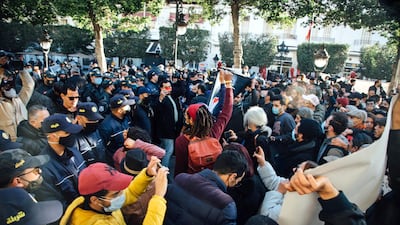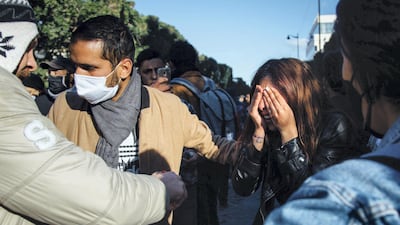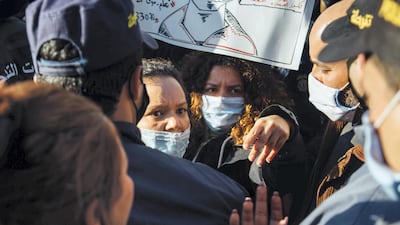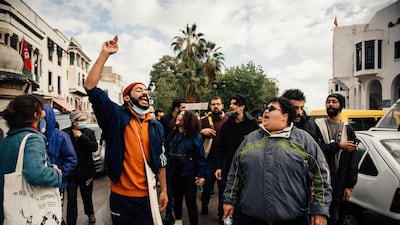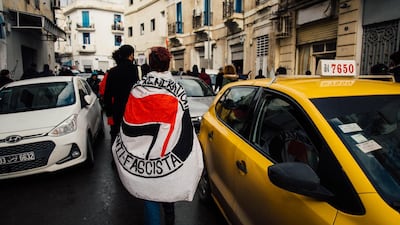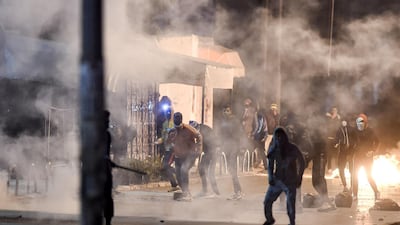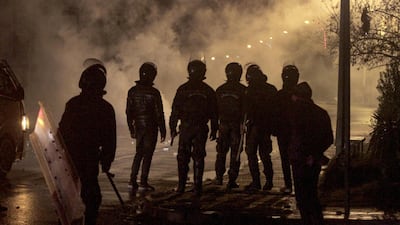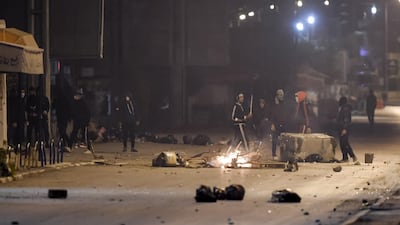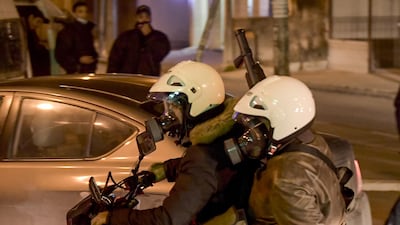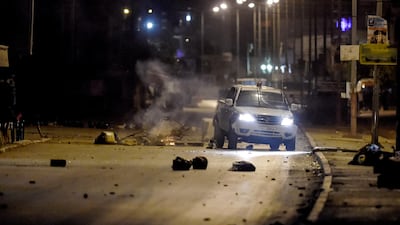An eerie quiet fell on Tuesday on Avenue Habib Bourguiba, the major artery of central Tunis, as police blocked traffic and cafes and stores shuttered their windows.
Then a sudden outburst: “We want the system overturned!” and dozens of protesters and police officers coalesced in the middle of the avenue.
For more than an hour, a crowd of about 200 protesters shouted slogans decrying the corruption of the Tunisian government, and particularly the largest party in parliament, the moderate Islamist Ennahda party.
“Ghannouchi must go!” was oft repeated, referring to Rached Ghannouchi, the speaker of parliament and Ennahda’s leader since the 1980s.
Police shot tear gas into the crowd, which they had surrounded on all sides, and deployed pepper spray. A teenage girl, clutching her eyes and gasping for breath screamed, “I can’t breathe!”
“We are out here today to support our fellow Tunisians in the poorest neighbourhoods, who are suffering under the hand of the Muslim Brotherhood and Ennahda” said Asma, 24, as she fled an onslaught of pepper spray.
“There will be a second revolution, we are sure of that.”

Demonstrators included scores of young people in their teens and early twenties, many of whom were young children when the revolution of 2011 forced former president Zine El Abidine Ben Ali out of power.
“Nothing has happened in the 10 years since the revolution,” said Aya, 21. “In fact things have only grown worse. We want jobs, we want dignity, we want to live.”
The country’s President Kais Saeed urged calm on a visit to the city of Ariana on Tuesday.

“I know the state of poverty and I also know who is exploiting your poverty,” he told a crowd. “Don’t let anyone exploit your misery, don’t attack private or public property. We live today because of moral values and not because of theft or looting.”
The latest confrontation came after a four-day lockdown and five consecutive nights of violent clashes between police and young protesters in working-class neighbourhoods throughout Tunisia. More than 600 people have been arrested, many of them minors in their early teens.
“The lockdown was a clear suppression of the political tensions,” said Shreya Parikh, a researcher who was on the ground observing the protests. “But they had the side effect of suppressing the informal labour sector” in which many of Tunisia’s poorest youths make a living.
"There are more than a million unemployed people in Tunisia, and the situation for our youth is dire," said Moncef Sassi, 58, who attended the protest in a full suit and tie. Most people The National spoke to mentioned the skyrocketing unemployment as a driving factor of the protests. The coronavirus pandemic has hit Tunisia's economy, which relies heavily on tourism, especially hard.
Mr Sassi also pointed to the rough treatment of young people by the police as an instigation of the current unrest. On January 9, videos on social media purportedly showed over 300 young fans of the Club Africain football team being arrested, beaten and kept in harsh conditions.
“The police treat the young people with violence and they respond with violence,” said Mr Sassi, as protesters peeled off the main group to avoid smoke bombs and pepper spray.
“I haven’t had a job in six months,” said Kadhem Brini, 24, coughing on the sidelines. “I haven’t been able to pay my rent, or sometimes even buy food. But what can we do? We are slaves of a broken system.”
